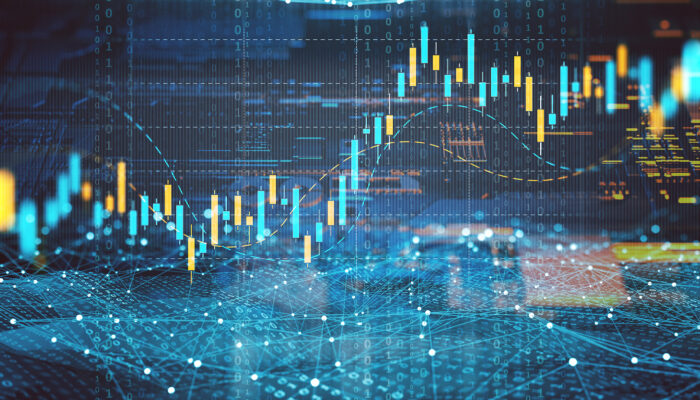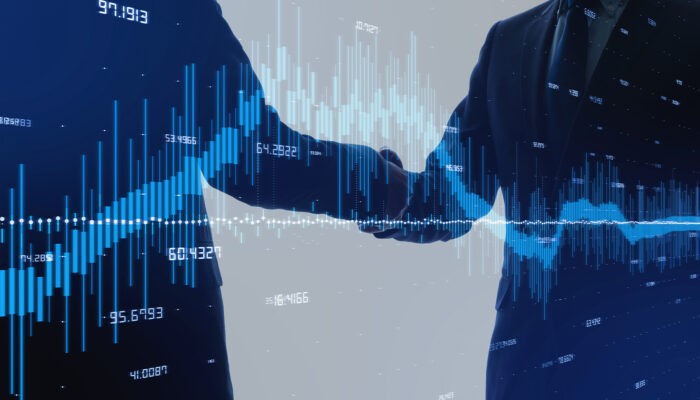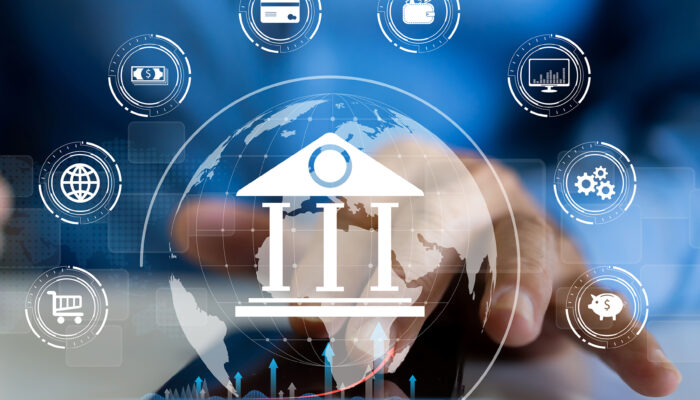We understand that the technology sector is a dynamic and ever-evolving landscape. For ambitious entrepreneurs and established tech enterprises alike, navigating the financial aspects of growth, expansion and exit can be a challenging endeavour. That’s where we step in.
DAI Magister is an M&A investment bank dedicated to helping tech-driven companies to scale faster and leave a lasting impact on the world.
In recent years, Africa, the Middle East, and North Africa (MENA) region, as well as other emerging markets, have witnessed a significant increase in investment and mergers and acquisitions (M&A) activity. This trend is driven by the growing recognition of the immense potential these markets hold, particularly in terms of their rapidly expanding economies, young and increasingly tech-savvy populations, and the rising demand for innovative solutions to address local challenges. Investors and companies from across the globe are taking notice of the opportunities presented by these regions, which are characterised by improving infrastructure, supportive government policies, and a burgeoning middle class.
The technology sector has been a key focus of investment and M&A activity in these markets, as the adoption of digital technologies continues to accelerate at an unprecedented pace. From fintech and e-commerce to health tech and edtech, start-ups and established companies alike are developing cutting-edge solutions tailored to the unique needs and preferences of consumers in these regions. This has attracted the attention of both local and international investors, who are keen to capitalise on the growth potential of these markets. As a result, venture capital funding, private equity investments, and strategic acquisitions have become increasingly common, as investors seek to gain a foothold in these dynamic and rapidly evolving ecosystems.
In the last few years, we have been on the frontlines facilitating deals and monitoring new developments as these markets continue to transform.
We have advised on over 10 transactions within these markets, where our landmark deals include:
The technology sector across emerging markets is experiencing a profound transformation, driven by a convergence of rising disposable incomes, increasing smartphone penetration, and a tech-savvy young population eager to embrace digital solutions. We focus on identifying and nurturing innovative technology companies that are addressing fundamental challenges across sectors such as financial services, healthcare, education, and commerce. We seek out businesses that demonstrate not only compelling unit economics and scalable business models, but also maintain strong competitive moats through proprietary technology and network effects.
Our clients are at the forefront of developing market-specific solutions that cater to the unique challenges and opportunities present in emerging economies. From pioneering fintech platforms that extend financial inclusion to millions of unbanked individuals, to e-commerce ventures that are revolutionising retail in second and third-tier cities, we partner with exceptional founders who possess deep local market understanding and global technological expertise. Through our extensive network and experience, we provide strategic guidance, access to potential partners, and help raise the capital needed to scale their operations across multiple markets whilst maintaining sustainable growth trajectories.
Climate tech has emerged as a crucial sector in the fight against climate change, attracting significant investment from both the public and private sectors. This technology encompasses a wide range of innovations, including renewable energy solutions, energy storage systems, electric vehicles, and carbon capture and storage techniques. As the world grapples with the urgent need to reduce greenhouse gas emissions and mitigate the impacts of global warming, climate tech offers a promising path towards a more sustainable future.
Investment in climate tech has been on the rise in recent years, with governments, corporations, and investors recognising the immense potential of this sector. VC and infrastructure funds have also been keen to support climate tech companies, providing much-needed capital to help scale up their operations. This influx of investment has enabled the rapid growth of the climate tech industry, fostering innovation and accelerating the transition towards a low-carbon economy.
The global climate tech market size is expected to reach US$150 bn by 2032. The lion’s share of funding has flowed to growth companies in energy, mobility, food, agriculture, land use and water and industry/manufacturing sectors.
Here are some of our climate transactions:
Digital infrastructure stands as the cornerstone of economic advancement in emerging markets, where rapid technological adoption is reshaping societies and economies at an unprecedented pace. From state-of-the-art data centres to expansive fibre networks and telecommunications infrastructure, these vital assets are catalysing transformation across Africa, Asia, and Latin America. Our expertise lies in identifying, developing and managing these critical digital assets, ensuring they meet the surging demand driven by increasing internet penetration, a growing middle class, and the swift adoption of mobile technologies across these dynamic markets.
We bring deep market knowledge and technical expertise to navigate complex regulatory environments whilst delivering both compelling returns and meaningful impact. Through our work, we not only generate sustainable long-term value for our clients but also drive positive social change by enhancing connectivity in underserved communities, creating skilled employment opportunities, and fostering local innovation ecosystems that will shape tomorrow’s digital landscape.
In recent years, healthcare has witnessed a surge in investment and innovation, driven by the pressing need to improve patient outcomes, streamline healthcare delivery, and reduce costs. From artificial intelligence-powered diagnostic tools to telemedicine platforms, the healthcare industry has embraced cutting-edge technologies that promise to revolutionise the way we approach health and wellbeing. This investment in healthcare technology has been fuelled by a combination of factors, including an ageing population, the rising prevalence of chronic diseases, and the increasing demand for personalised and accessible healthcare services.
One of the most promising areas of healthcare is the application of artificial intelligence and machine learning algorithms to analyse vast amounts of patient data, enabling more accurate diagnoses, personalised treatment plans, and early detection of potential health risks. Additionally, the proliferation of wearable devices and remote monitoring systems has empowered patients to take a more active role in managing their health, while providing healthcare professionals with real-time data to inform clinical decision-making. Telemedicine has also gained significant traction, particularly in the wake of the COVID-19 pandemic, as it allows patients to access medical care remotely, reducing the risk of infection and improving access to healthcare services in underserved areas. As investment and M&A in healthcare technology continues to grow, it is expected to drive significant advancements in disease prevention, treatment, and overall patient care, ultimately leading to better health outcomes and a more sustainable healthcare system.

According to research, the global climate risk assessment market is projected to reach $31.2 billion by 2030, growing at a compound annual growth rate (CAGR) of 17.5% between 2024 to 2030. This growth is fuelled by the rising adoption of AI and machine learning technologies in climate risk modelling and assessment.

The second quarter of 2024 marked a turning point, with PE’s strongest deal-making period in two years. PE firms closed 122 acquisitions valued at an impressive $160 billion. While this still pales in comparison to the high-water mark of Q3-2021—when 232 deals worth $300 billion were completed—it represents…

According to Future Business Insights report, the global green technology and sustainability market for steel production is projected to reach over $89 billion by 2032, growing at a compound annual growth rate (CAGR) of 20.9% from 2024 to 2032. This remarkable growth is driven by increasing environmental regulations, consumer demand for sustainable products, and the steel industry’s…

The magnitude of the global food waste crisis is nothing short of alarming. Approximately one-third of all food produced worldwide—a staggering 1.3 billion tonnes—ends up in bins and landfills annually. This equates to roughly £1 trillion worth of food lost or wasted every year. In the UK alone, the scale is equally sobering: households and businesses squander around 9.5 million tonnes of food annually, with a value exceeding £14 billion.

Currently, the annual utilisation of CO2 stands at approximately 230 million tonnes, with the majority being channelled into urea production for the fertiliser industry and enhanced oil recovery. However, this figure falls significantly short of the volume we must capture by 2050 to achieve net zero emissions. To address this shortfall, a substantial increase in utilisation methods and sequestration is required.

Despite the increased adoption of renewable energy and growing maturity of several key decarbonisation pathways, CO2 emissions peaked in 2023 and are projected to continue rising for decades to come. Even governments of countries with firm climate commitments, such as the UK which pledged to achieve zero-carbon electricity by 2035, will continue to build new natural gas-fired power plants to ensure reliable power supply.

The urgency of the water crisis is likely to drive further investment and innovation in the coming years. With freshwater demand projected to surpass supply by 40% by 2030, there is a clear and growing need for innovative water solutions. This gap between supply and demand represents a substantial market opportunity for companies that can develop effective technologies to address water scarcity, improve water quality, or enhance water use efficiency…

As the demand for AI surges, so does the energy consumption of data centres. It’s predicted that by 2026, data centre electricity consumption could reach 1,000 terawatt-hours, equivalent to Japan’s total annual usage. However, AI itself may hold some of the keys to addressing this challenge. Our blog delves into how AI-driven solutions are transforming data centre operations, from optimising power usage to enabling smart grid integration…

NPUs are emerging as the solution of choice in an AI semiconductor market bifurcating into training and inference applications. These specialised chips offer significant advantages in terms of size, cost and energy efficiency for AI processing tasks. With projections indicating the edge AI inference device market will reach c$50bn by 2026, this presents a considerable opportunity…

In our earlier posts we explored two key elements of successful exit preparation: the overarching idea of preparing to be “bought not sold” and the “essential actions” a company and board can undertake, well in advance of any planned exit, to maximise both price and certainty. A third vital dimension in any successful exit prep phase (what we term “Stage 1”) is cultivating serious buyer interest well in advance of an intensive exit process (“Stage 2”).

In this second post on exit planning, we explore some of the key actions that underpin successful preparation (what we call Stage 1) before an intensive, competitive M&A sale process (Stage 2). Based on our experience across 300 exits spanning decades, we firmly believe that thoughtful, sustained preparation over several months or even 1-2 years before a company is formally put up for sale increases both the price and certainty of an eventual deal.

From the highs of 2021-22, exits exceeding $100 million have fallen 50% to 2018-19 levels. While this is still considerably higher than the previous decade, to investors and founders this surely feels like a sharp decline. This reset, however, should come as no surprise. Everything reverts toward the mean, and with high interest rates and public companies going private due to low valuations amidst economic and macro uncertainty, achieving successful exits now requires thoughtful and sustained planning to maximise value…

The digital health landscape is evolving rapidly, with advancements in remote consultation, mental health support, at-home diagnostics, patient monitoring, and the integration of artificial intelligence (AI) and generative AI (GenAI). These technologies are not only improving access to healthcare services but also transforming the way care is delivered, making it more efficient, personalised, and patient-centric…

Remittances play a pivotal role in many African economies, significantly contributing to their Gross Domestic Product (GDP). In 2022, remittances accounted for an average of 7.6% of GDP in Western Africa, 6.8% in Eastern Africa, 4.4% in Northern Africa, 3.7% in Southern Africa, and 1.4% in Central Africa. The total value of remittances in Africa reached nearly $100 billion, with $20 billion being intra-Africa flows.

Building Trust and Scale – unlocking Africa’s Fintech Potential

Solving African Problems with African Solutions

Africa’s Infrastructure Investment Playbook

Catalysing Sustainable Development in Africa

Insights into the African tech ecosystem

Tech investing in Africa



Feeding millions of Africans with fish protein

Building a credit-led neobank for Africa

Streamlining Africa’s complex supply chains to boost trade

Investing in African technology companies

Capitalising on first-mover advantage

Scaling to 3M customers across Africa

Surviving & thriving after the Lagos State ride hailing ban

Solving Africa’s broken retail supply chain

Investing in Africa’s female founders

Transforming pharmacies into the ‘care co-ordination infrastructure’ for Africa

Tackling Africa’s $300bn logistics supply chain


Dare Okoudjou talks about building a pan-African payments company